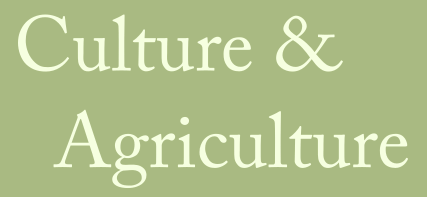A NEW ROTATION
I am excited to join Culture & Agriculture as the new Web Fellow! As part of my duties, I will be rotating into the role of writing the Weekly Gleanings updates, a series started by the previous fellow, Jon Tanis.
Since it’s been a while since the last update, I will focus today’s Weekly Gleanings on some major news since Jon finished his tenure as Web Fellow:
The European Union banned all use of neonicotinoid insecticides that threaten bee populations (The Guardian), but reauthorized the 5-year license for use of the controversial pesticide glyphosate (Reuters).
China, the European Union, Mexico, and Canada have all threatened retaliatory tariffs against the United States targeting agricultural products from historically Republican-leaning states (NYTimes)
Bayer and Monsanto have cleared many of the regulatory hurdles towards their merger, creating concerns over how much agricultural output this combined behemouth will control. As The Guardian reports, “[t]hrough its many subsidiary companies and research arms, Bayer-Monsanto will have an indirect impact on every consumer and a direct one on most farmers in Britain, the EU and the US. It will effectively control nearly 60% of the world’s supply of proprietary seeds, 70% of the chemicals and pesticides used to grow food, and most of the world’s GM crop genetic traits, as well as much of the data about what farmers grow where, and the yields they get.” Read the rest of the article for an analysis of how this merger threatens small-scale farmers around the world.
June 17 was World Day to Combat Desertification and Drought, which brought attention to plans to build a Great Green Wall along the northern border fo the Sahel in order to reverse and prevent desertification of the region and protect its agricultural systems. Like so many development projects around the world, there seems to be a lack of engaging communities that might be negatively impacted by this project, in particular herders who use the land for transhumance. (Inter Press Service)
An over-reliance on monoculture agriculture in Brazil has caused increasing food insecurity. “All of this [waste, poor nutrition, and ecological devastation], he said, has to do with climate change, the loss of biodiversity, growing health problems, the concentration of land ownership and the dominant power of agribusiness and large corporations.” Despite being a major exporter of food, Brazil ranks in the Food Sustainability Index at 28 out of 34 (the United States also ranks low at 21). (Inter Press Service)
There is once again a global glut of milk production, and US cheese stocks have reached a new record of over 1.3 billion pounds (Quartz). That’s 4 pounds of cheese for every American sitting in a warehouse somewhere!
Lab-grown meat is still a long ways from arriving on supermarket shelves, but the cattle meat lobby is already working hard to keep lab meat producers from labelling their products as “meat.” This mirrors efforts by the dairy industry to keep vegetable-based milks from being labelled as “milk.” (Slate).
Black farmers in Tennessee are suing Stine Seed Company for falsely selling them low-yield seeds in order to drive them out of business and buy their land (video embedded below). Their seeds yielded 90% less than the seeds used by their white neighbors.
If you have suggestions for news items you would like to see included in the Weekly Gleanings series or feedback, please email me at gkohler [at] uci [dot] edu.

